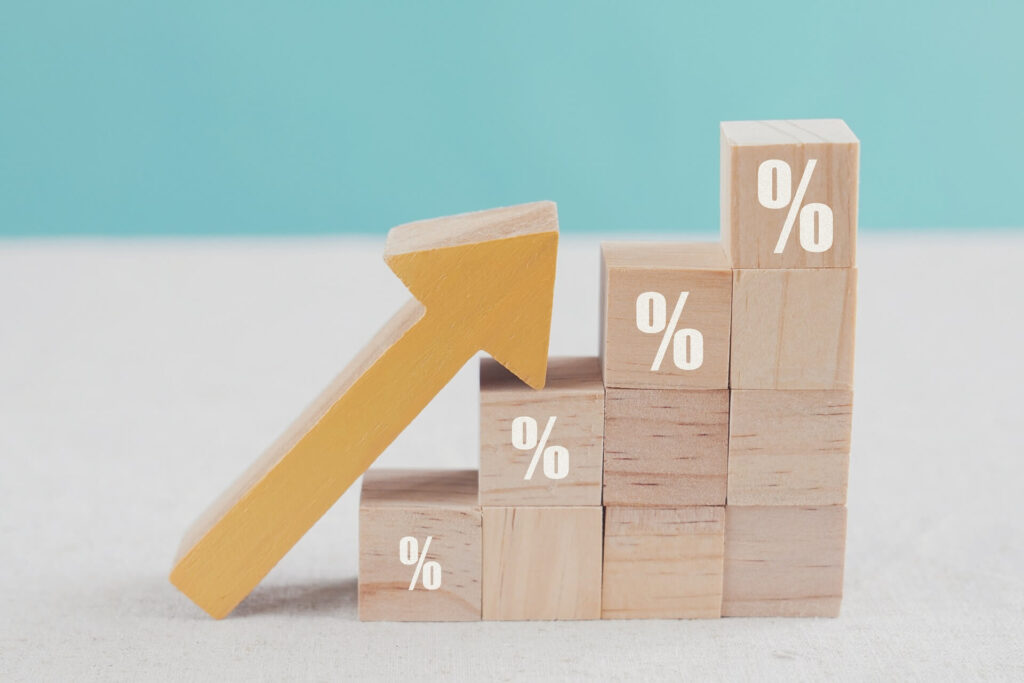If you are like most people, you’re probably asking, “Will I have enough saved in my super account to have a comfortable retirement?” or “How much super should I have at my age?”
Research conducted by Savvy revealed that 52% of Australians between 45 and 54 are either unconfident or not confident at all about having enough in their super by the age of 65. But is this lack of confidence backed up by facts? Yes, if you consider the average super balances at various ages, most Australians won’t have enough in their super.
According to The Association of Superannuation Funds of Australia (ASFA), couples turning 65 in 2023 will need almost $70,000 per year to retire comfortably, while singles will need just over $49,000 to achieve this.1 These amounts were increased recently based on the current inflation rate (1.8% per quarter), which has been much higher than the historical average (0.6%) since the early 1990s.
Looking at the average super balances of Australians shows that many are well below what they need for retirement. ASFA estimates $535,000 per couple in super by age 67 is needed for a comfortable retirement, while Super Consumers Australia estimates a couple between the ages of 55 to 59 currently need to have $402,000 in super to comfortably retire by the age of 67.2At the same time, the median amount held in super by couples in this age group is just under $272,000.3
This shortfall makes it fairly clear that contributions under the superannuation guarantee in the form of employer super contributions are insufficient for most people to have a comfortable retirement. If you feel your super balance is not at the level it should be, here are a few things to do to change this.
Strategies for making extra contributions to your super fund
There are two main ways to make superannuation contributions: concessional and non-concessional. Concessional contributions are put into your superannuation account using pre-tax dollars. Non-concessional super contributions are those made with after-tax dollars.
Concessional super contributions
With concessional contributions, excess contributions beyond the super guarantee amount are taxed at a concessional rate of 15% once they are paid into your super fund. So in effect, you pay less tax than if you took this money as income. For example, if your taxable income is between $45,000 and $120,000, every dollar you earn over $45,000 is taxed at 32.5%. But when you make additional super payments – through salary sacrifice contributions or personal deductible contributions – you are paying 17.5% less tax. The concessional contributions cap is now $27,500, which includes super guarantee payments made by your employer, salary sacrifice contributions and personal deductible contributions.
You can carry forward unused concessional contributions for up to 5 years (from the 2018/19 financial year), but you need to meet certain criteria, which include:
- Having a total super balance from the previous financial year of less than $500,000 and
- Making financial contributions in the financial year that exceeded the general concessional contributions cap.
Let’s look at an example of how this works:
In 2021-2022, Mary’s concessional contributions to her superannuation, including her employer’s superannuation guarantee payments and salary sacrifice contributions, totalled $18,000. The total balance of her superannuation was $265,000. In 2022-2023, she receives a $15,000 bonus that is paid into her super fund as a salary sacrifice agreement. Although she will exceed the $27,500 super contributions cap in the 2022-2023 year, she can carry forward $9,500 that wasn’t used in 2021-2022. So her super contributions above the superannuation guarantee amount will only be taxed at 15%.
Non-concessional (after-tax) contributions
Non-concessional super contributions are those made from your after-tax income and not taxed in your super fund (as with concessional contributions). There are various types of non-concessional contributions and these can include contributions:
- Any contributions that you or your employer makes from your after-tax income
- Spouse contributions
- Personal contributions
- Most transfers from overseas super funds
Eligible downsizer contributions don’t count towards the cap, allowing you to contribute more to super. For people selling their home and ‘downsizing’, this presents a great opportunity to boost their super balances.
Since 2021, the non-concessional contributions cap is $110,000 per year. If you contribute more, you may have to pay extra tax. But depending on your super balance and your age, you may be able to take advantage of bring-forward arrangements that allow you to contribute more to boost your super balance.
Why make non-concessional superannuation contributions?
These contributions are usually made closer to retirement to increase your super account balance. They can be beneficial because:
- There will be no tax on contributions, as you are using after-tax dollars
- Earnings from your investment will be taxed at a maximum rate of 15% and then are tax-free during the retirement phase
- When accessing your superannuation in the future, you will receive non-concessional contributions completely tax-free, which can be taken either as a lump-sum payment or part of a pension paid over time.
Getting help with planning
Retirement income planning can help you achieve a comfortable retirement. The challenge is knowing the strategies to implement and mistakes to avoid.
At Finextra Wealth, we work with our clients to provide them with:
- clarity around the things they need to plan for financially
- insights based on our experience and having an understanding of their personal situation and
- partnership as they move through the stages of their lives.
Get in touch with a retirement specialist at Finextra Wealth today.
References:
1 https://www.superannuation.asn.au/media/media-releases/2023/media-release-21-march-2023
2 https://www.superconsumers.com.au/retirement-targets
3 https://reviewmysuper.com.au/superannuation-news/average-super-balances-by-age/
Retire with Confidence by Minimising the Risks! Get the expert advice you need to both save and spend well by contacting Finextra Wealth.
Book a free breakthrough strategy call with Heath Hebenton to find out more.





